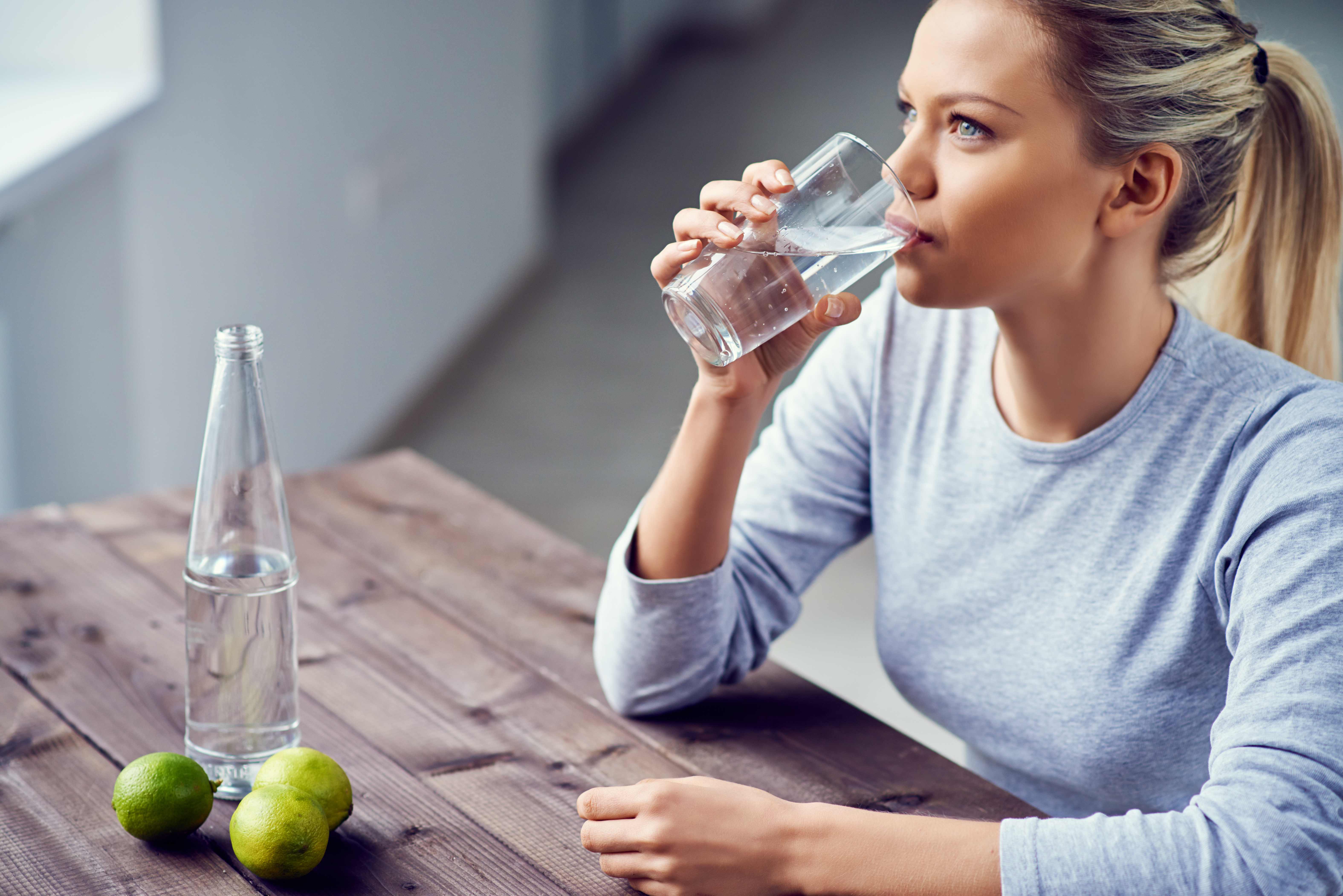
Although water has no taste, it is the most important drink, and has become the second most popular drink (behind soft drinks) around the world. Since our bodies are made up of around 60% water, it’s a nutrient we need to function properly. Generally, it is recommended that we drink eight 8-ounce glasses of water a day. However, that has not been scientifically proven to be true and therefore is seen as more of a guideline. This doesn’t mean you don’t need water though. It just means that no matter how many ounces of water your body needs each day, you should be able to tell by listening to your body and recognizing when it’s thirsty.
Since our bodies lose water everyday through breathing, sweating and digestion, it is important that we stay hydrated and continue to replace the water being lost. Here are 5 top reasons to drink water everyday:
- Water aids in digestion and helps remove waste from your body:
Digestion, which starts with saliva, needs water to help break down food and other nutrients. Once food is digested, water is then needed to help dissolve fiber and allow the body to create healthy soft stools that are easy to pass. The kidneys, intestines and liver also rely on water to flush out waste and move food through your intestinal tract.
- Water helps control calories:
While water won’t make you magically drop pounds, substituting it for other beverages such as soda, will definitely help. In addition, water-rich foods are also good because they are healthier, more filling and aid in trimming calorie intake. Water-rich foods are also absorbed more slowly by the body, which helps you feel fuller for longer. Water-rich foods include oatmeal, beans, fruits and vegetables.
- Water energizes muscles and maximizes physical performance:
When muscles don’t have an adequate amount of water, they become fatigued and performance is affected. Therefore, fluid intake is important before, during and after exercising or participating in any kind of physical activity that causes you to sweat and lose water. Dehydration can lead to altered body temperature, decreased motivation, increased fatigue and overall difficulty with physical and mental activity.
- Drinking water helps to prevent and treat headaches:
Dehydration headaches are one of the most common forms of headaches. Dehydration reduces your blood volume which affects the amount of oxygen-rich blood flowing to the brain. The result: pain. Drinking enough water will prevent these kinds of headaches and even migraines from happening. Several studies have also shown that water can reduce the intensity and the duration of those headaches.
- Water helps keep your skin glowing:
Drinking enough water can make a big difference in how your skin looks. Without enough water your skin can look duller, and wrinkles and pores are more noticeable. Water plumps up the skin filling in pores and wrinkles, making them less apparent. Also, when skin is hydrated it is less likely to become dry and cracked. When your skin isn’t cracking, it makes it harder for bacteria to get in and cause blemishes.
There aren’t any set rules or exact measurements on how many ounces of water you should drink a day. Most people meet their personal daily hydration needs by simply drinking water whenever they feel thirsty, according to a report on nutrient recommendations from the Institute of Medicine of the National Academies. If you’re unsure you are drinking enough water, listen to your body. If your urine is clear, you are hydrated. If it is dark, you are dehydrated and likely need to drink more water.
If you feel as though you need to be drinking more water, here are 5 tips to increase your water intake:
- Drink some kind of beverage with every meal.
- Choose beverages you like. You are more likely to drink more if you choose beverages that you like the taste of.
- Eat more fruits and vegetables. Water-rich foods such as fruits and vegetables account for about 20% of our fluid intake.
- Try to have a bottle of water with you at all times.
- If you don’t like the taste of water, add your own natural flavors to it such as lemons or oranges.
If you currently don’t have health insurance, Nevada Health Link is here to help. As part of a Qualifying Life Event (QLE), you may be eligible for a Special Enrollment Period (SEP). In other words, certain life events or situations, such as job loss, income change, marriage/divorce or birth/adoption of a child, may allow you to enroll in an insurance plan through Nevada Health Link outside of the annual open enrollment period.
All of our health plans exist to reduce the costs of health insurance and make sure you are covered. We’re always to help, so don’t hesitate to reach out for assistance.





